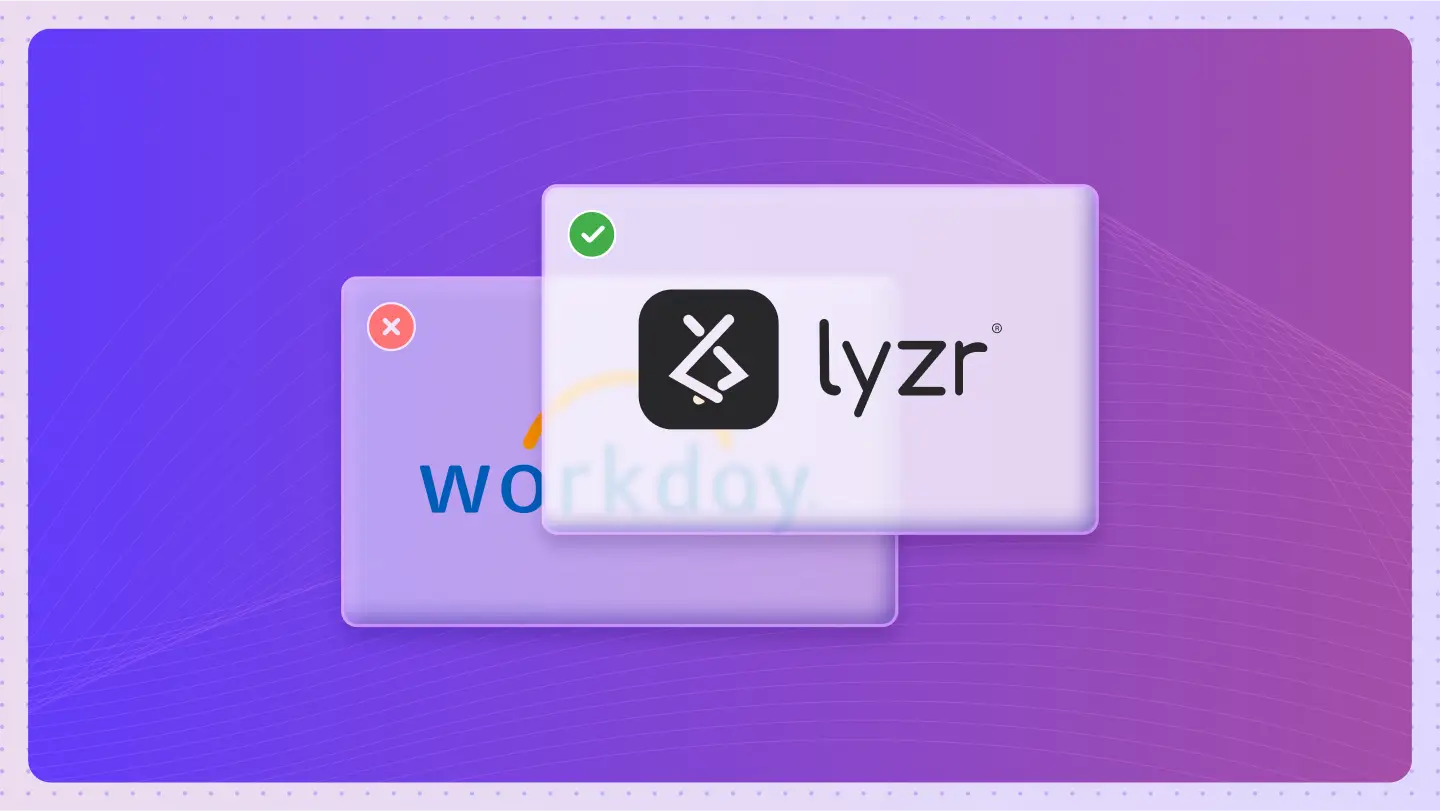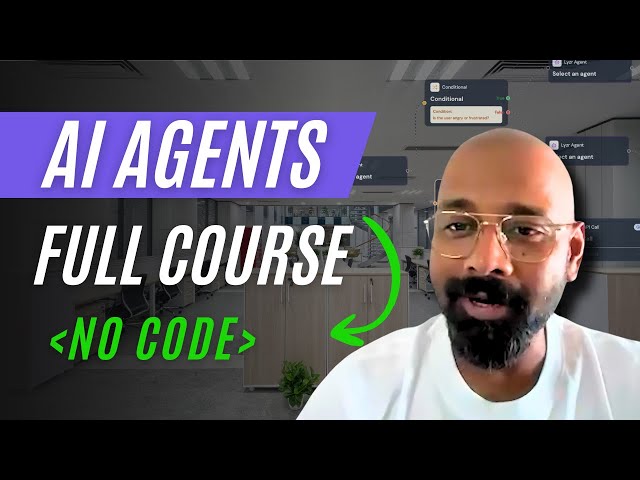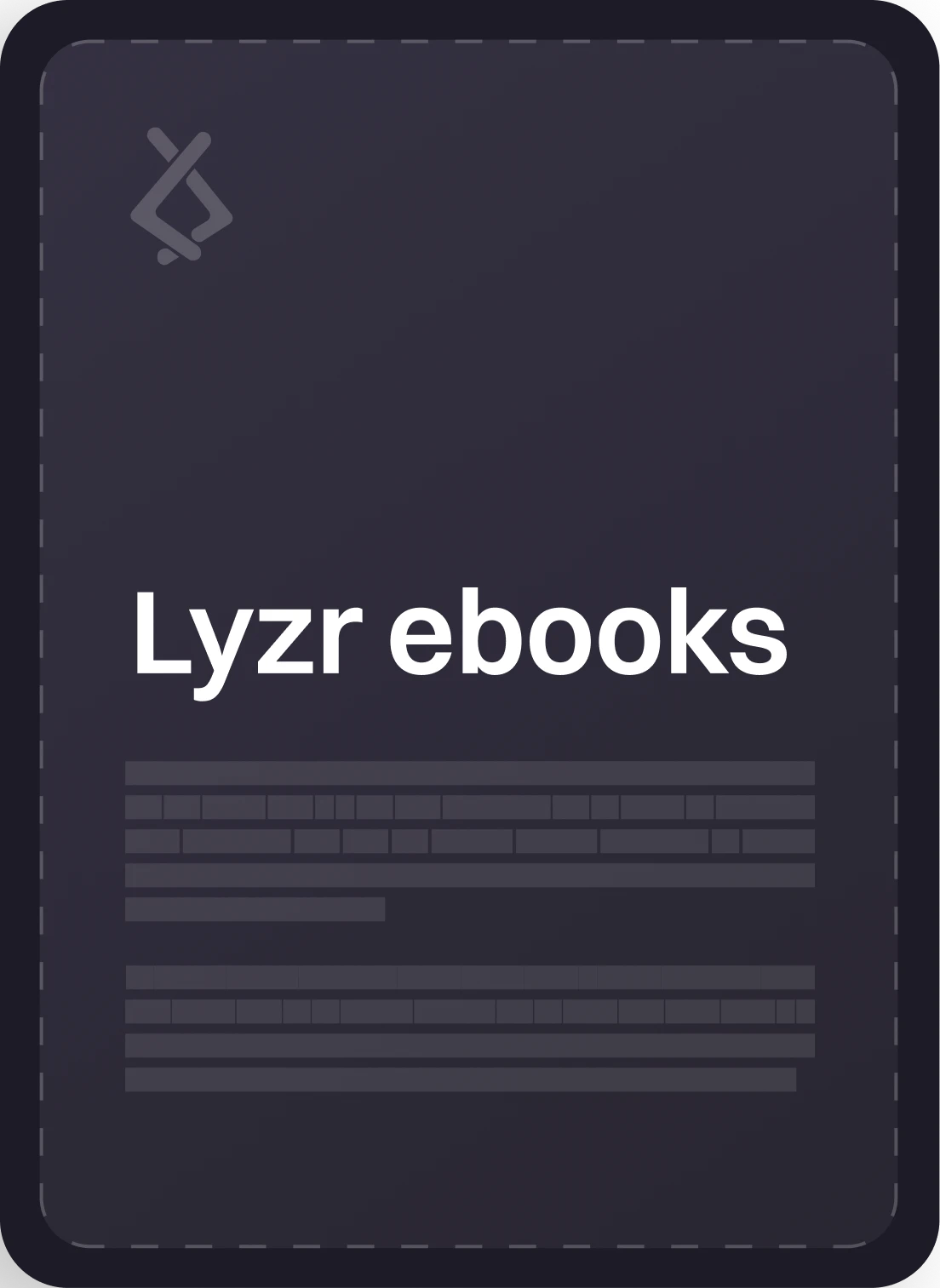Why AI Projects Stall?
We know why businesses can’t afford to let AI projects stall: the costs are too high, and the opportunities are too big. That’s exactly why agentic AI has become the next frontier.
Unlike traditional automation that handles one-off tasks, agents can think through a process, make decisions, and complete workflows end-to-end.
Whether it’s resolving customer cases, qualifying leads, or publishing marketing content, agents bring speed and consistency that manual work or basic bots can’t match.
The Agent-Based AI Opportunity
And the market is moving fast. By 2030, agent-based AI is expected to automate tasks worth over $6 trillion globally, making it one of the biggest levers for business growth across industries like healthcare, finance, and retail.
The market for agent-based AI solutions is expected to expand from about $5 billion in 2024 to more than $50 billion by 2028, reflecting an annual growth rate of 78%.
This surge is fueled by rising demand for advanced automation in industries including healthcare, financial services, and retail.
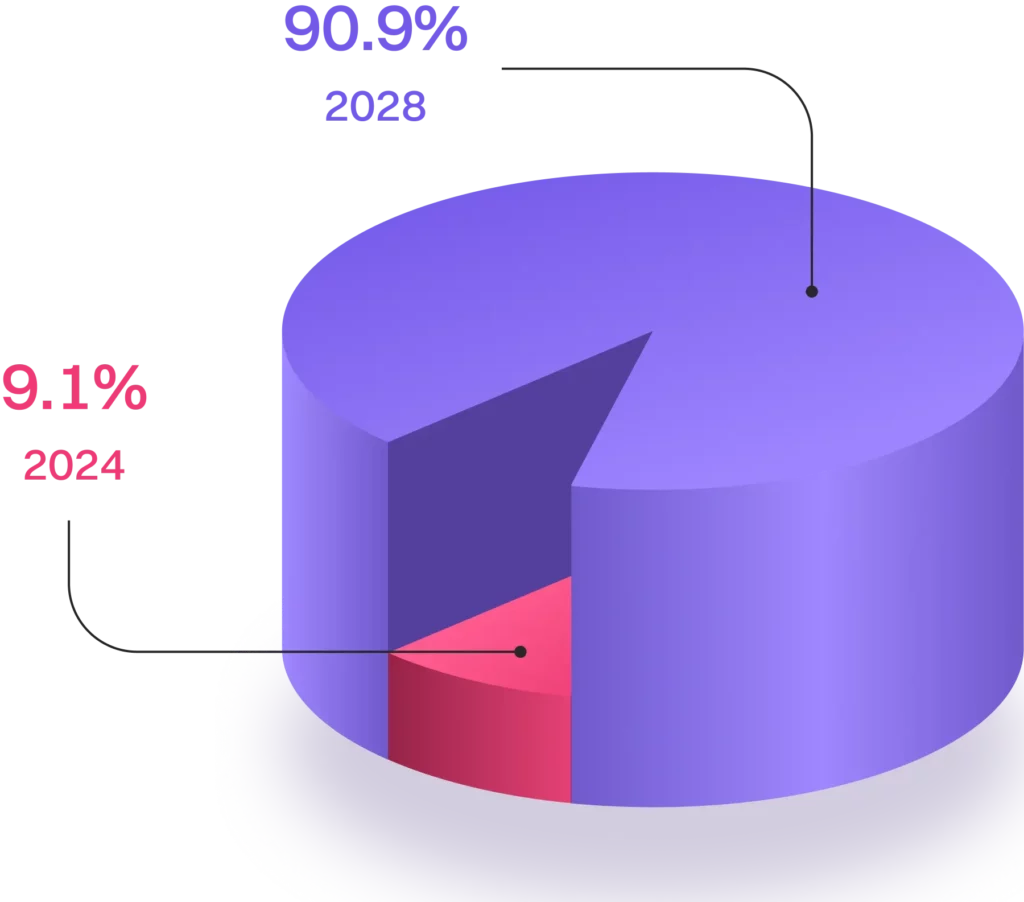
Agent-Based AI Solutions Market Growth (2024 vs 2028)
So what exactly are businesses gaining from this shift? It usually comes down to three things:
| Business Goal | How Agents Help | Real Impact |
| Enhance Productivity | Agents run multi-step workflows without constant human input. | Companies see up to 40% faster customer response times. |
| Drive Revenue Growth | Agents personalize interactions and optimize sales pipelines. | Early adopters report 25% higher sales efficiency. |
| Improve Cost Efficiency | Agents cut down repetitive manual work and streamline operations. | Enterprises achieve 20% lower ownership costs using platforms like Agentforce. |
These outcomes explain why agentic AI adoption is accelerating. But here’s where the decision becomes tricky: how do you choose the right platform to deliver these results?
Right now, the market is shaped by two very different approaches:
- Agentforce, which delivers speed and compliance by embedding directly into Salesforce.
- Lyzr, which delivers flexibility and control through a platform-agnostic, private-first model.
Why Compare Lyzr & Agentforce??
When businesses evaluate AI agents, it’s not about whether they need them, it’s about choosing the right platform to deliver results. Agentforce and Lyzr represent two very different approaches:
- Agentforce is deeply tied to Salesforce, offering speed, ready-to-use workflows, and built-in compliance.
- Lyzr is platform-agnostic and private-first, giving businesses flexibility, lower marketing costs, and full control over deployment.
To make the choice clearer, here’s how they compare across the dimensions that matter most to enterprises
The Reality Behind the Gold Rush
In 2024, many companies jumped headfirst into Salesforce AgentForce, chasing efficiency like miners in a gold rush

The Numbers Tell One Story…
- Rapid adoption across enterprises, but adoption stats alone don’t capture the full picture
…The Reality Tells Another
- 67% of companies operate AI agents with minimal oversight, like giving teenagers unlimited credit cards
- Consequences include costly mistakes, missed opportunities, and workflow disruptions
That’s why here are the top factors one must consider before making a decision to choose between Lyzr & Agentforce
Deployment & Integration
Question to ask:
How flexible does your enterprise need to be across systems and infrastructure?
Choosing between a platform-native vs. platform-agnostic model often starts with how your tech stack is structured. Some teams live entirely within Salesforce.
Others operate in a mixed environment, Salesforce for sales, HubSpot for marketing, WordPress for content, and custom apps for operations. Your integration and deployment requirements will heavily influence the right platform fit.
Lyzr: Platform-Agnostic Flexibility
Lyzr is designed to sit across any environment, Salesforce, HubSpot, WordPress, custom stacks, or a mix.
It’s API-first and can be deployed in public cloud, private cloud, or on-premise. This gives teams full control over data, infrastructure, and integration priorities.
There’s more upfront setup compared to Agentforce, but this investment pays off in long-term flexibility. Lyzr fits well in organizations that don’t want to be locked into a single ecosystem and need agents to orchestrate workflows across multiple systems.
Best for:
- Enterprises with heterogeneous tech stacks
- Teams prioritizing data sovereignty and deployment control
- Organizations looking for long-term flexibility over quick wins
Agentforce
Salesforce enforces strict boundaries that slow enterprise-scale deployments:
- Only 20 active agents per org
- Each agent handles 15 topics × 15 actions:
This makes building complex, multi-department workflows nearly impossible.
Version control is missing. Every change requires deactivating and reactivating agents, causing downtime and blocking iterative improvements.
Integration and Performance Bottlenecks
Limits go beyond configuration caps:
- Action timeout: Workflows exceeding 60 seconds fail, hurting reliability.
- Data dependencies: Requires clean, structured Salesforce CRM data, legacy or fragmented data can take months to fix.
API restrictions: No support for custom models (BYOM) and limited API flexibility, locking enterprises into Salesforce’s ecosystem.
Quick Decision Checklist
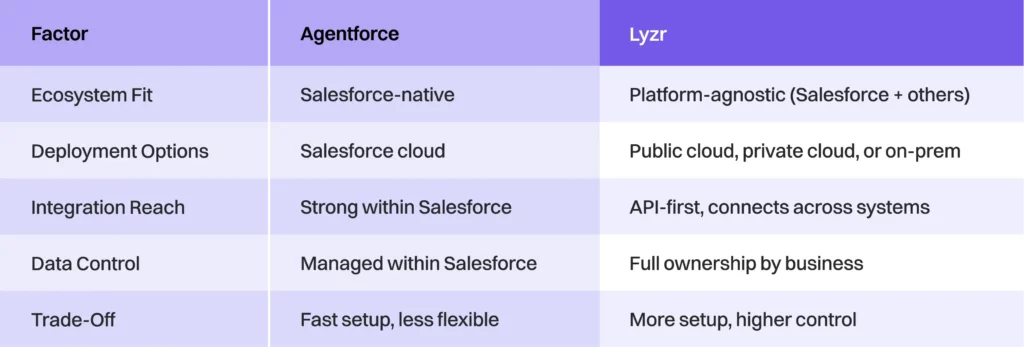
So How to Decide??
- ✅ Choose Agentforce if your operations run entirely on Salesforce and speed is the top priority.
- ✅ Choose Lyzr if your workflows span multiple platforms or if data control and deployment flexibility are critical.
Governance & Compliance
For enterprises, governance and compliance are non-negotiable. Whether it’s handling sensitive customer data, meeting industry regulations, or maintaining audit readiness, the choice of platform must align with strict security and compliance requirements.

Lyzr
Lyzr takes a private-first approach: all data stays within the client’s own cloud environment. This design minimizes third-party exposure and gives organizations direct control over compliance with frameworks like GDPR or HIPAA.
By avoiding ecosystem lock-in, businesses also retain autonomy in setting their own governance policies without relying on an external vendor’s roadmap.
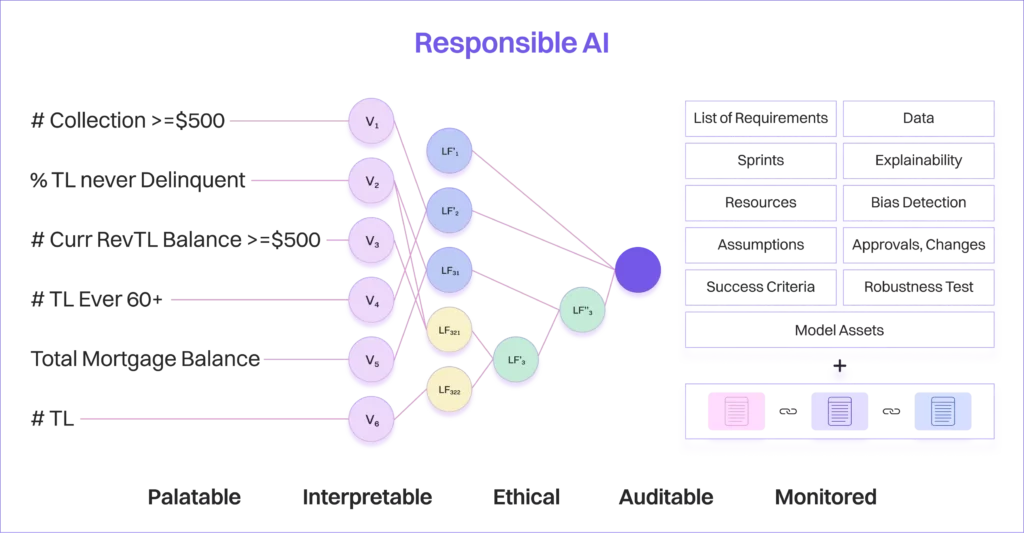
This makes Lyzr especially compelling for companies prioritizing data sovereignty and regulatory autonomy.
Agentforce
Agentforce only performs as well as the data it gets. Clean, consistent Salesforce records are a must, but most enterprises run into the same issues:
- Data trapped in silos
- Duplicate or inconsistent records
- Complex mapping across systems
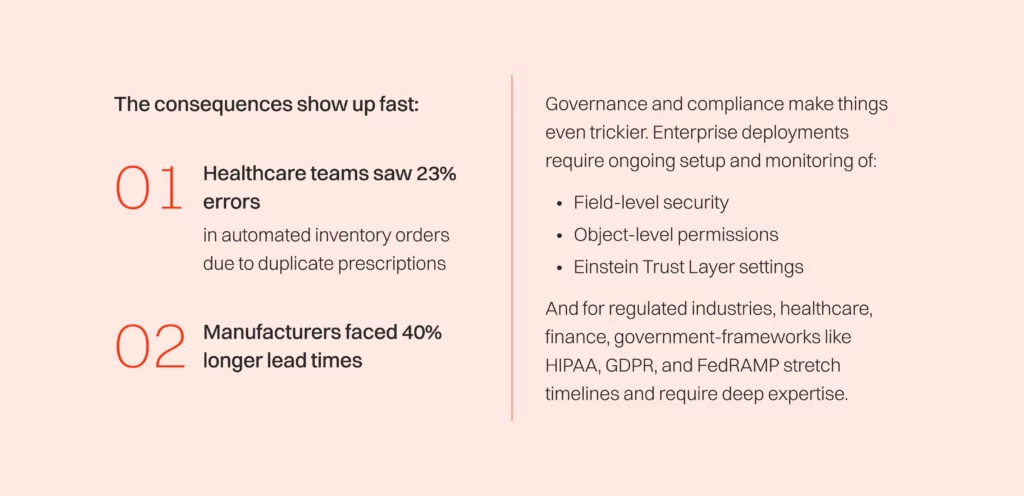
Which Model is Stronger?
Lyzr’s private-first deployment model stands out as the stronger choice, giving organizations complete control over sensitive data, governance policies, and regulatory compliance, without relying on an external ecosystem’s guardrails.
Performance and Scalability
Lyzr
Built for enterprise-scale deployments without the same bottlenecks:
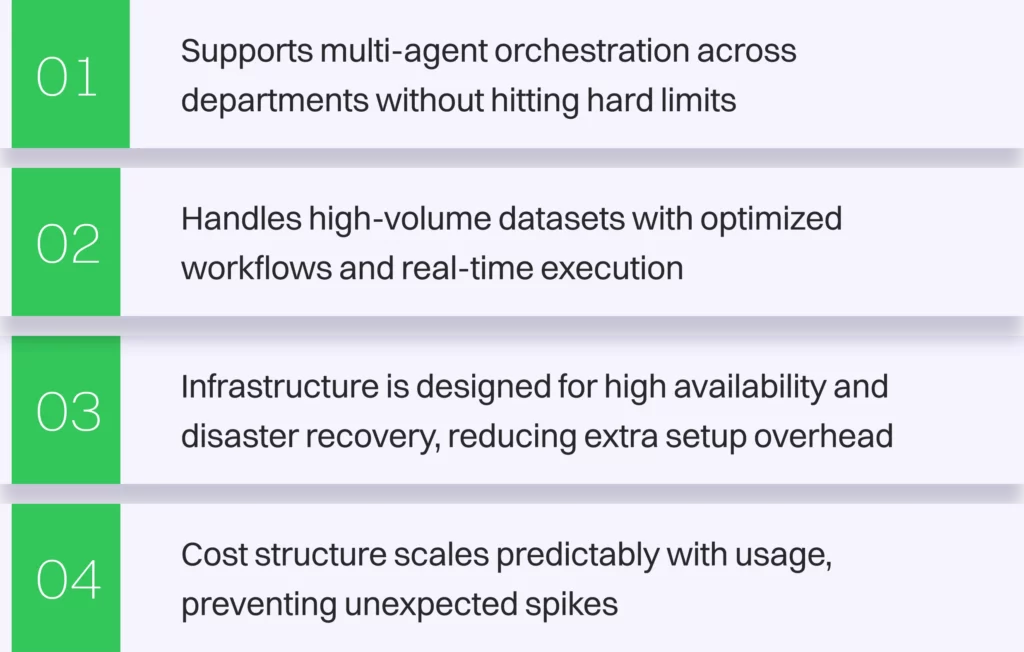
Agentforce
AgentForce deployments often experience slowdowns when processing high volumes of Salesforce data:
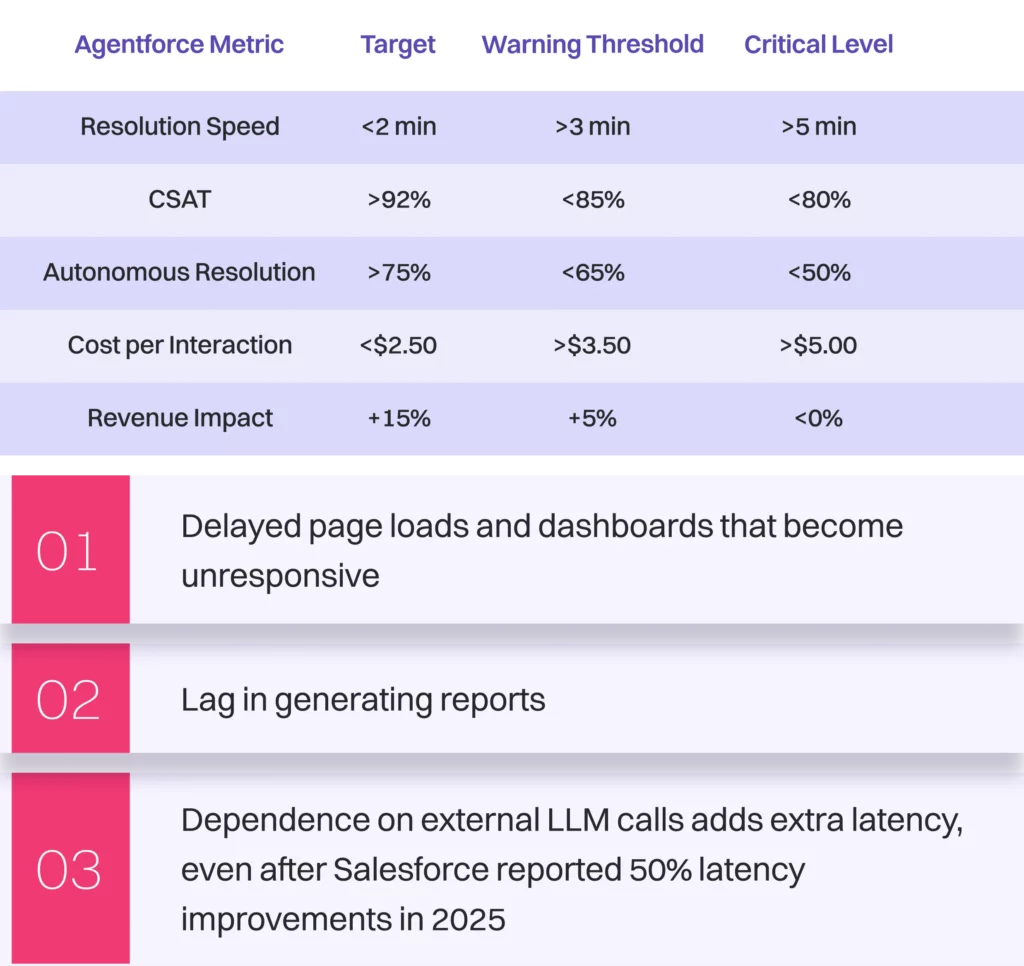
Scalability Limitations
Scaling AgentForce across large enterprises introduces significant constraints:
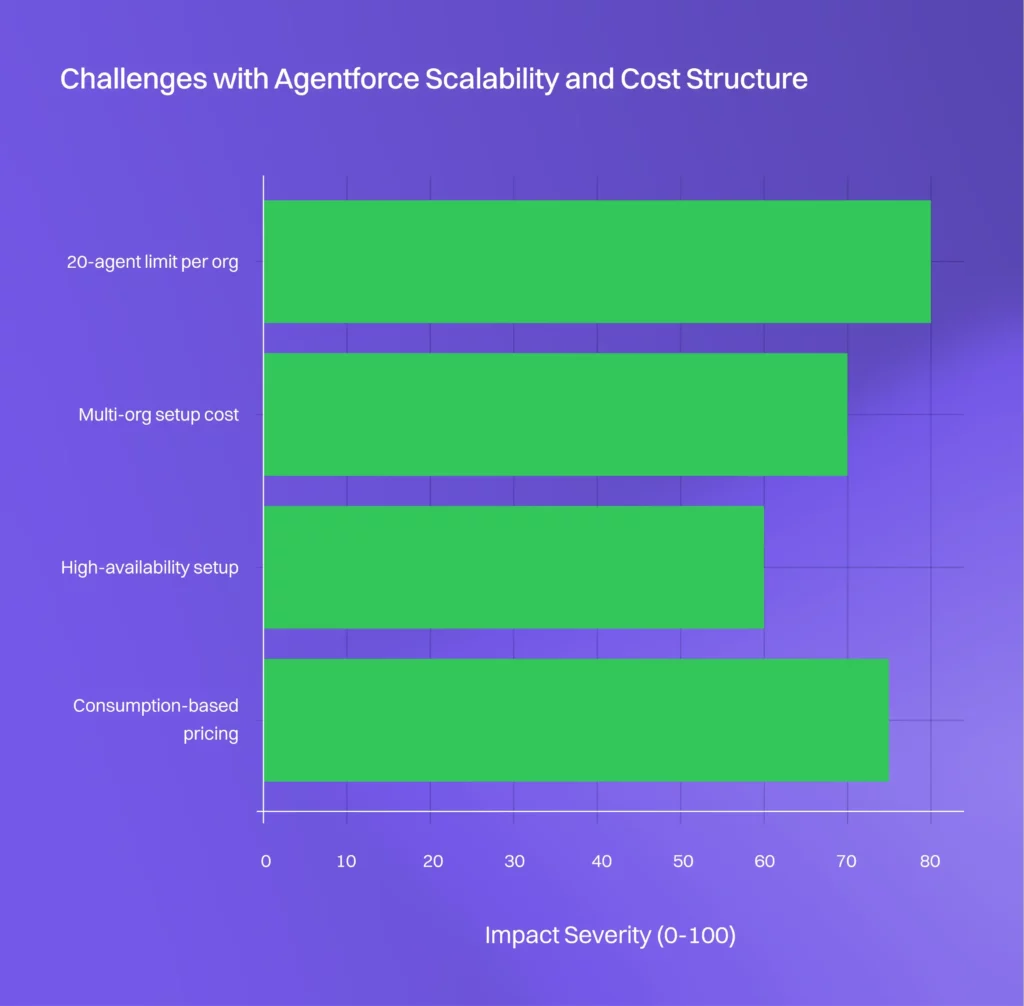
Customization
AI platforms often prove their real value in how far they can be tailored beyond out-of-the-box features. Flexibility ensures that businesses can adapt the platform to complex, evolving workflows instead of reshaping their processes around a tool’s limitations.
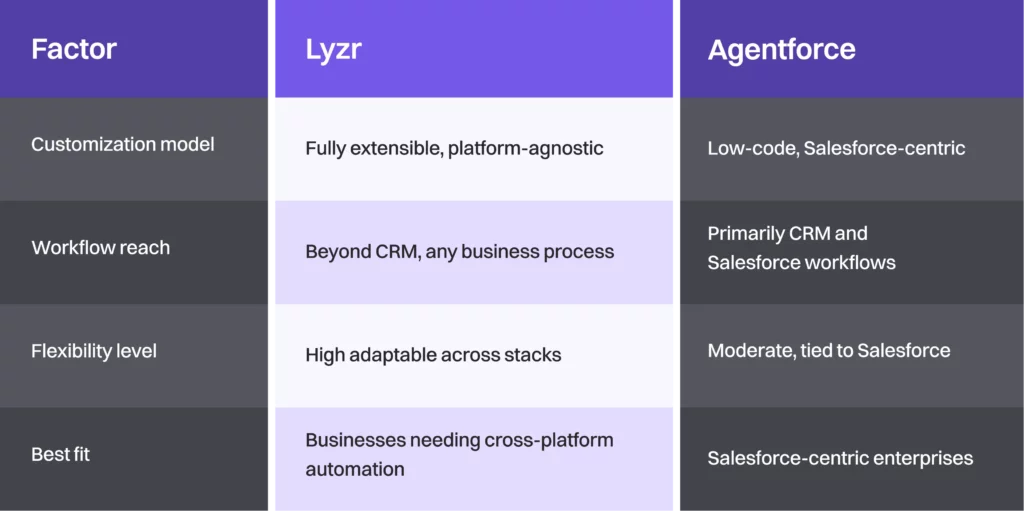
Lyzr
Lyzr is built for end-to-end customization. From content workflows to cross-platform automation, it can be extended and configured to fit virtually any business process.
Since it’s not tied to a single ecosystem, teams can mold Lyzr into their environment, whether that means integrating with multiple CRMs, automating marketing operations, or embedding AI into existing applications.
This adaptability ensures that organizations are not boxed into predefined use cases.
Agentforce
Agentforce supports low-code customization within Salesforce. Businesses can tweak workflows, add automations, and create custom objects that align with Salesforce-native processes. While this offers flexibility for Salesforce-first organizations, customization remains Salesforce-centric. Extending use cases outside CRM or adapting workflows for mixed stacks often requires additional effort and ecosystem commitment.
Which Model is Stronger?
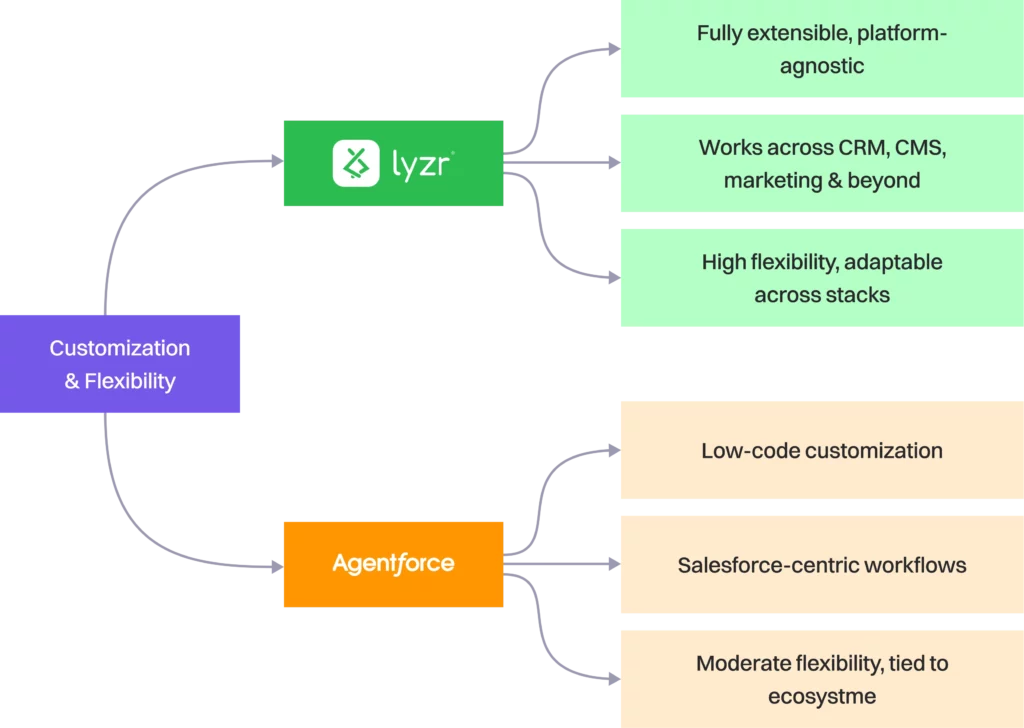
Lyzr clearly offers greater flexibility, enabling organizations to tailor automation across a wide spectrum of workflows and platforms. Its platform-agnostic design ensures businesses can scale and customize without being bound by ecosystem limits.
Data Security
The average data breach costs $4.45M. Ensuring proper AI data security? Only $850K. The numbers speak for themselves.
LYZR AI agents are built with enterprise-grade security at every layer:
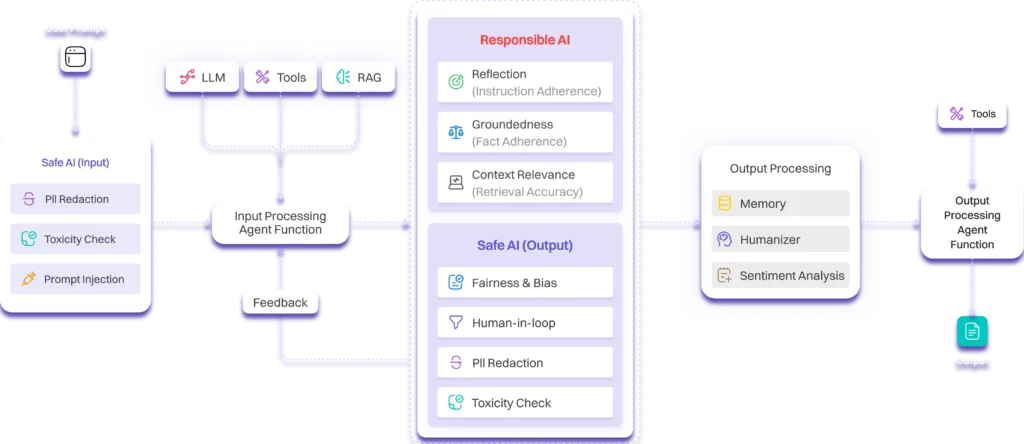
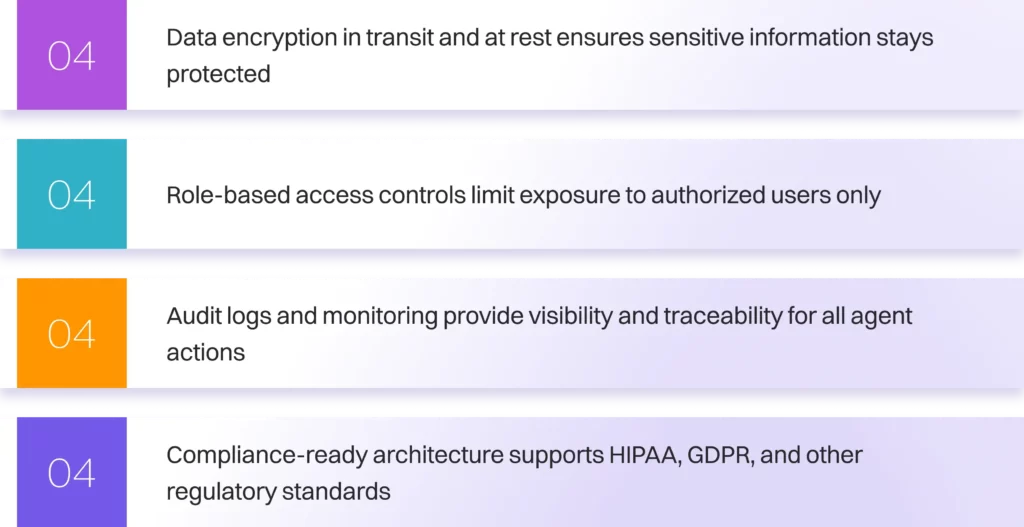
Agentforce
The security of an AgentForce implementation depends entirely on its underlying framework.
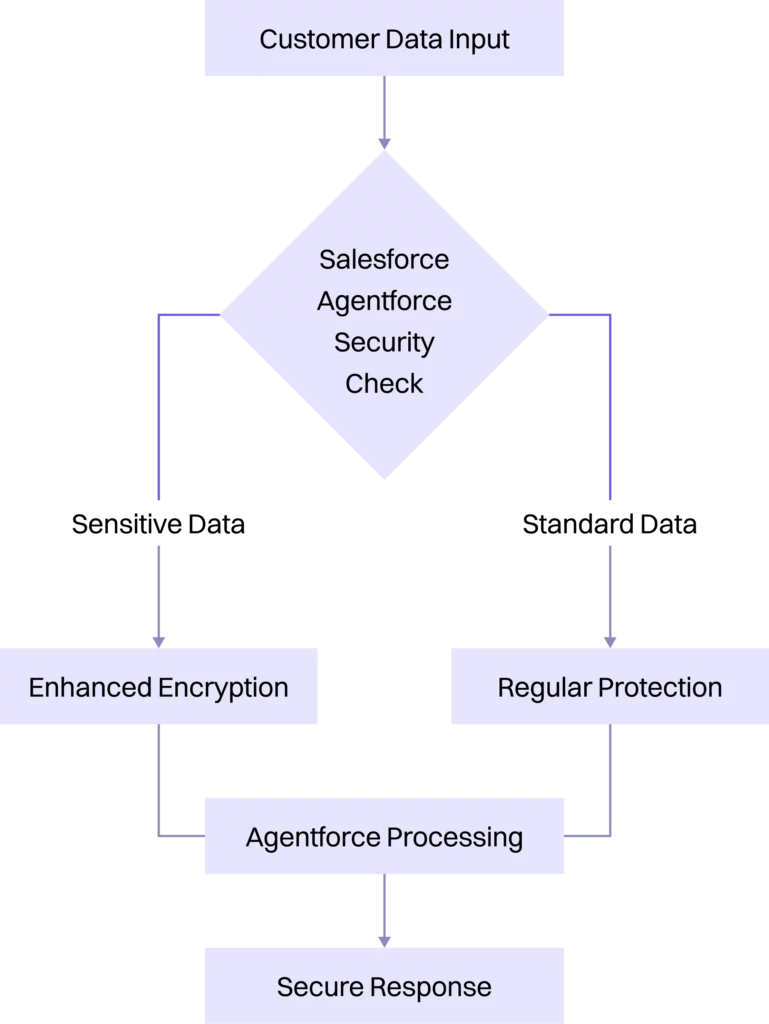
Security Implementation Matrix
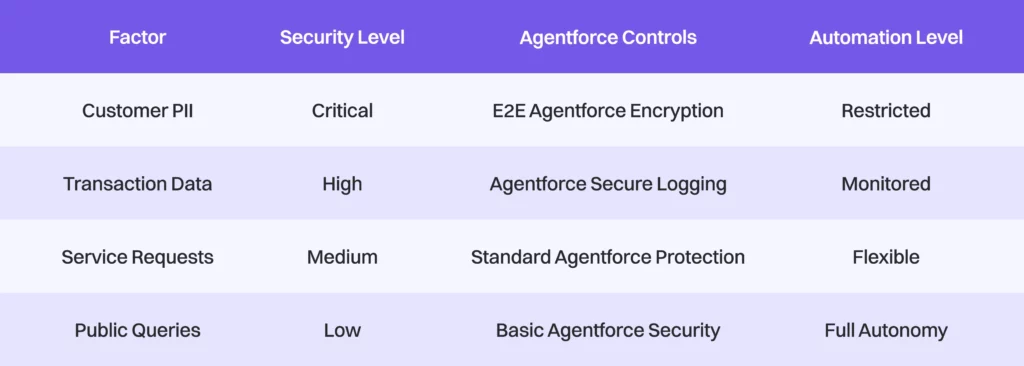
Developer Experience
The ease with which developers can build, extend, and maintain AI agents plays a crucial role in how effectively a platform scales across business functions.
Checklist: For Developers Choosing the Right Platform
- Can you run test environments without causing downtime?
- Can you customize agent logic beyond prebuilt templates?
- Can your agents communicate across multiple systems?
- Do you have control over deployment and scaling?
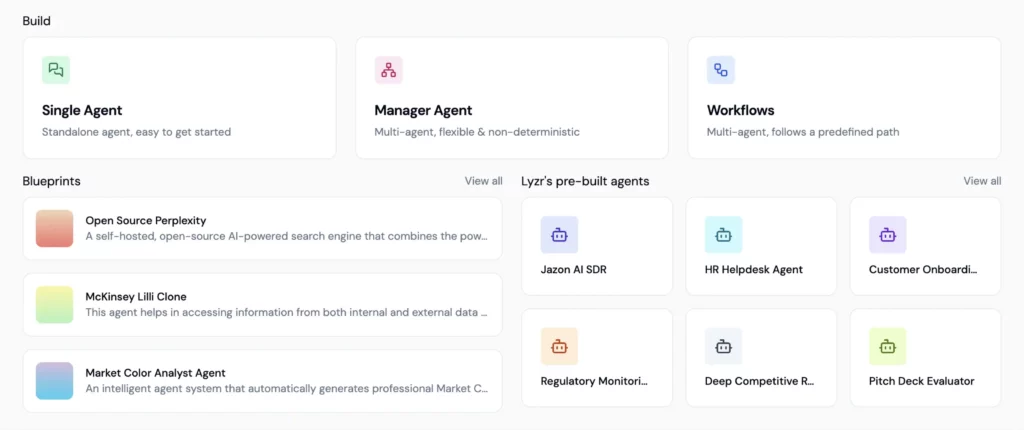
Lyzr offers a highly flexible developer environment that balances speed and control. Developers can create custom AI agents for any business function, from marketing and sales to HR, finance, and IT.
The platform is platform-agnostic, allowing integration with CRMs, ERPs, CMSs, or any cloud service. This means teams can orchestrate workflows across diverse systems without being restricted to a single ecosystem.
Lyzr supports both low-code templates for rapid deployment and full-code customization for complex scenarios.
Developers can also test agents in a safe environment, monitor performance, and fine-tune behavior without interrupting live workflows. This combination of flexibility, observability, and autonomy enables teams to innovate quickly while maintaining governance and security.
Agentforce
Agentforce is designed for developers working within the Salesforce ecosystem. It leverages Salesforce Flow, Apex, and pre-built templates to automate CRM-centric workflows such as lead routing, case triaging, and service automation.
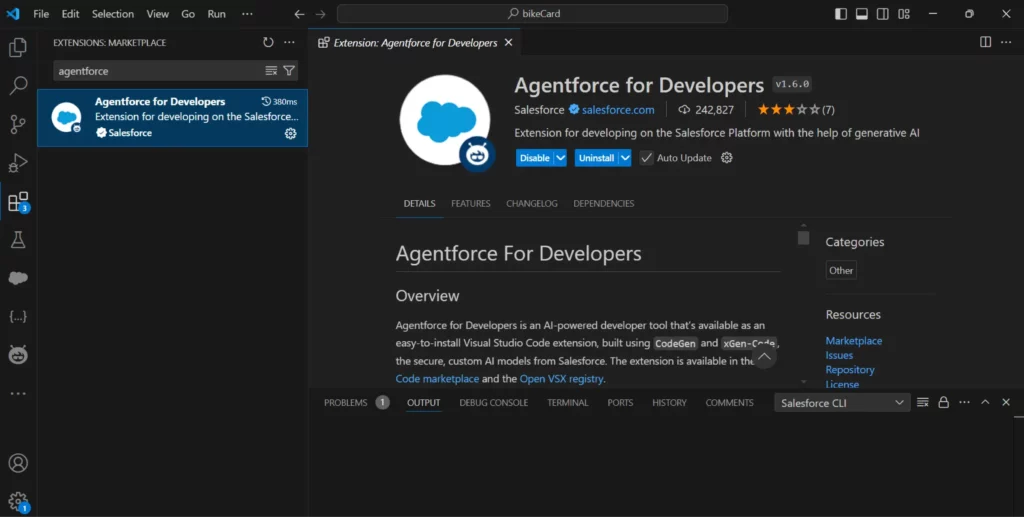
While development within Salesforce is smooth and predictable, customization beyond the CRM environment can be challenging. Observability and testing are tied to Salesforce tools, which can limit flexibility for teams working across multiple platforms.
Which Model is Stronger?
Lyzr provides a more versatile developer experience. Its combination of low-code acceleration and full-code extensibility, coupled with cross-platform flexibility, empowers developers to innovate across industries and functions, without being confined to a single ecosystem.
Lyzr Advantage
Across deployment, speed to value, customization, governance, scalability, and ROI, Lyzr consistently demonstrates broader applicability and higher flexibility than Agentforce.
Its design allows organizations to scale AI automation across all industries and business functions, from marketing and sales to HR, operations, and finance, without being tied to a single ecosystem.
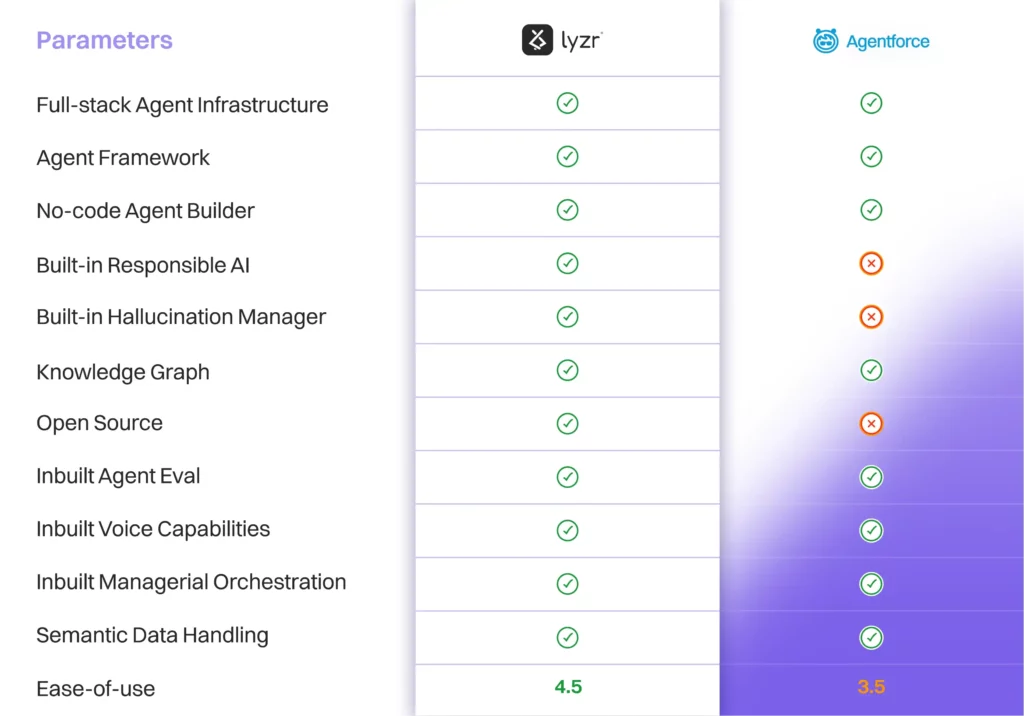
Lyzr’s private-first approach ensures data stays in the client cloud, giving businesses autonomy over governance, compliance, and security.
Developers benefit from both low-code acceleration and full-code extensibility, enabling rapid innovation across workflows. Combined with cost efficiencies, up to 40% lower operational costs and 70% faster workflow execution , Lyzr provides a sustainable, high-impact ROI.
In short, Lyzr is not just an AI agent solution; it is a comprehensive, enterprise-ready system for organizations seeking flexibility, control, and measurable business value across every function and industry.

